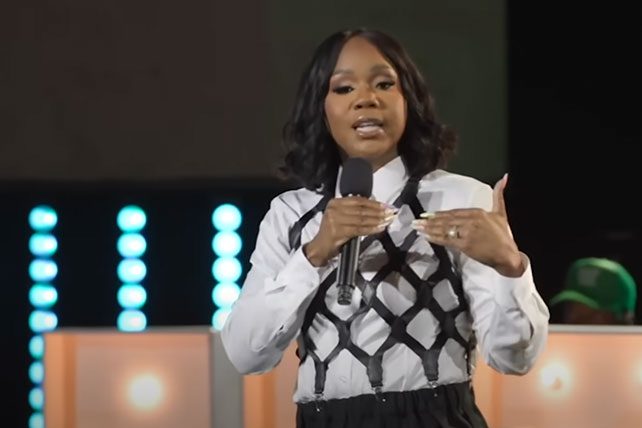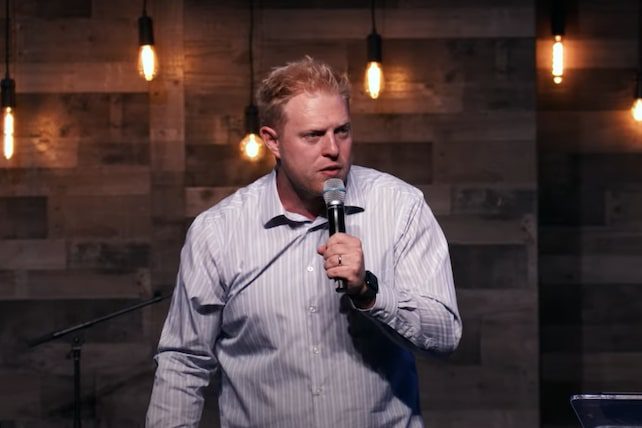In life, the people closest to us are the ones who tend to know us the best. Our flaws, talents, idiosyncrasies, the way we roll our eyes, or move our hands—those are the things our loved ones have studied and can mimic with precision. We’ve spent so much time around each other that we naturally pick up each other’s mannerisms. They can even correctly interpret our nonverbal body language. What if we had that kind of intimacy with God?
We know these people and these people know us. But for some reason, when it comes to intimacy with God, we believe the lie that we can’t really know Him, His ways or His thoughts, because of His greatness and magnitude. As logical as that thought may seem, it’s completely untrue and disproven by Scripture. Yes, God is so great and vast that there will always be something we’re discovering about Him in this lifetime. We may not be able to know everything about Him now, but that does not mean we can’t know Him better.
Throughout the Bible, we have numerous examples of the Lord making Himself known to His creation.
And the Word became flesh and dwelt among us, and we beheld His glory, the glory as of the only begotten of the Father, full of grace and truth. (John 1:14)
Our God communicates with His creation. We see this throughout the Word as the Lord directs His children and communicates with them, displaying His nature as an involved Father who loves, leads and guides. The way He initiated interaction with His children in the past is how He works with us now. He is the same yesterday, today and forever. The Bible is clear that “God is no respecter of persons”; therefore we can expect our Heavenly Father to grow us in every way, and this includes our level of intimacy with Him.
We see growth in intimacy with God in the lives of believers throughout Scripture.
Moses and Joshua led God’s people from Egypt and into the promised land of Canaan. Through almost a century of following the Lord, they learned His views and His way of thinking. He talked to them about what was most important to Him and how they were to respond to the various challenges around them. Not only was He continuously watchful and present, but God showed Himself as an engaged Father who desired for His children to not just follow Him, but to know Him intimately.
Jonah was a reluctant messenger who knew God’s merciful nature. As he attempted to rebel against the Lord’s clear direction, Jonah learned about the discipline of his Heavenly Father and the thorough forgiveness that is offered to even the vilest offender. Through the ups and downs of following the Lord, Jonah gains greater intimacy with God.
Abraham was in the midst of living his life, when the Lord spoke to Him and began to lead him into His divine plan to make him into a great nation. The Lord took a man who was idolatrous and willingly made Himself known to him, becoming his God and establishing a covenant with him, making promises that He would obligate Himself to fulfill, not just in Abraham’s lifetime, but for all time. Although Abraham wasn’t looking for God, he was drawn into a relationship in which Yahweh taught him about Himself, drawing near to man.
God, who at various times and in various ways spoke in time past to the fathers by the prophets, has in these last days spoken to us by His Son. (Hebrews 1:1–2)
The Lord is excellent at pursuing and winning those He has made. And fortunately He doesn’t just desire relationship with Jewish leaders, but all of His children.
Come to Me, all you who labor and are heavy laden, and I will give you rest. Take My yoke upon you and learn from Me, for I am gentle and lowly in heart, and you will find rest for your souls. (Matthew 11:28-29)
This is why He’s given us access to Himself through Jesus. Salvation is our open door for encountering God. It’s through the sacrifice of Jesus on the cross that we’ve been given free access to get to have intimacy with God.
The truth we need to remember is that Almighty God, who made Heaven and Earth, wants to be in relationship with us and wants us to know Him the way He knows us. He sees every effort we make to grow in intimacy with Him. And we can trust that when we draw near to Him, He will draw near to us.












 Pastoral ministry is a journey filled with both joys and challenges. During the inevitable
Pastoral ministry is a journey filled with both joys and challenges. During the inevitable 















